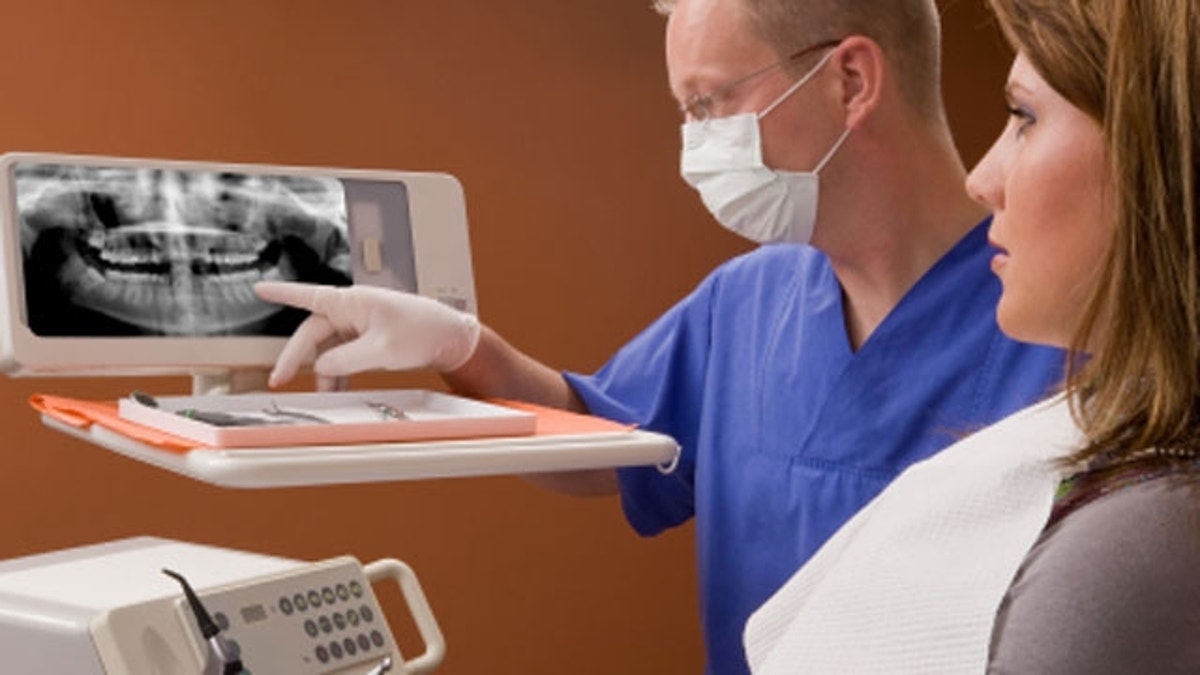
Everybody knows going to the dentist is important, yet half of American adults skip out on regular dental care.
Some avoid dentistry out of fear of pain or sheer busyness, but a large portion of Americans can’t afford it without financial assistance.
Unfortunately, it’s Americans on government assistance programs for dental care who are being taken advantage of. Worse, their children are suffering for it.
It started as a solution
Many low-income children don’t receive dental care until they’re brought to the emergency room with a toothache, simply because their parents can’t afford it. Nearly half of American children are on some form of government-funded health insurance, either Medicaid or the Children’s Health Insurance Program (CHIP).
READ MORE: 6 Ways to Save at the Dentist
For children whose parents make too much money to qualify for Medicaid but can’t afford regular health insurance, CHIP is available in all 50 states. Recently, some states expanded CHIP to better cover children’s dental care, and Medicaid increased its dental payouts for children’s services. As a result, corporate dental chains started accepting Medicaid and CHIP, and even opening new offices specializing in Medicaid. Millions of low-income kids were able to see dentists for free or for a low cost. That’s the good news.
Profiting without proof
The bad news is that before long, Medicaid officials began noticing something strange. Suddenly, the number of high-cost stainless steel crowns for cavities spiked. Connecticut pays $230 for these crowns compared to $100 for a regular filling, which is more appropriate than a crown for small cavities. In light of the spike, Connecticut’s Medicaid office started requiring dentists to get authorization for the steel crowns, according to the Center for Public Integrity, a nonprofit investigative news organization.
READ MORE: How Much Does a Filling Cost?
That’s when they noticed that most of the charges were coming from one dental chain, Kool Smiles, and that the x-rays didn’t justify their treatments. Kool Smiles was investigated, and state officials found that the crowns were not only unnecessary but that the dental work was shoddy. Crowns often didn’t fit, and in other cases, x-rays showed exposed nerves or untreated tooth decay.
Kool Smiles representatives met with the state Medicaid office, but the chain failed to take corrective action within a reasonable amount of time. After a letter from the Medicaid commissioner saying Kool Smiles’ actions amounted to malpractice, the chain started correcting the problem.
Beyond one chain, one state
That was in 2010, but Kool Smiles is still under observation in Connecticut. Texas Medicaid officials are also investigating the chain’s claims, and Massachusetts and Georgia have documented its unnecessary procedures in past years.
But Kool Smiles isn’t the only dental chain implicated by government officials in fraudulent billing practices. Dental chain Small Smiles settled with the United States in 2010 for $24 million to resolve allegations of fraudulent charges. In April 2014, the company that owns Small Smiles, CSHM, Inc., was excluded from participating in federal health care programs like Medicaid for five years.
READ MORE: Use Your HSA for Dental Care, More
Additionally, the Office of the Inspector General most recently investigated dental offices in Indiana that provided care to more than 50 children and charged Medicaid in 2012. Investigators analyzed the claims and were able to identify 94 general dentists and one oral surgeon with questionable billing practices. These 95 practitioners represent about 11 percent of the dental providers reviewed, according to the OIG report.
“Notably, two-thirds of the general dentists with questionable billing worked for four dental chains in Indiana,” that report states. One Indiana dentist even billed Medicare for 343 services in a single day, an unlikely feat.
Similar OIG audits were conducted throughout 2012 in Louisiana and New York. Those investigations also turned up dozens of pediatric dental centers that received “extremely high payments per child,” a statement made in both reports.
READ MORE: How Much Does It Cost to Have a Baby?
More investigations needed
What it all boils down to is that dentists, mostly within corporate chains, are not only taking advantage of state and federal assistance, but they’re using children to do it. And that doesn’t just affect the poorest people in the country, but all taxpayers.
What we don’t know is how widespread the problem truly is. Since all such investigations have turned up problematic billing, it’s not hard to believe this happens all over the nation. There’s also the possibility that dental chains are fraudulently billing private dental insurers as well.
The U.S. Department of Health and Human Services, which runs the OIG, says it is committed to conducting more state investigations in the future.
